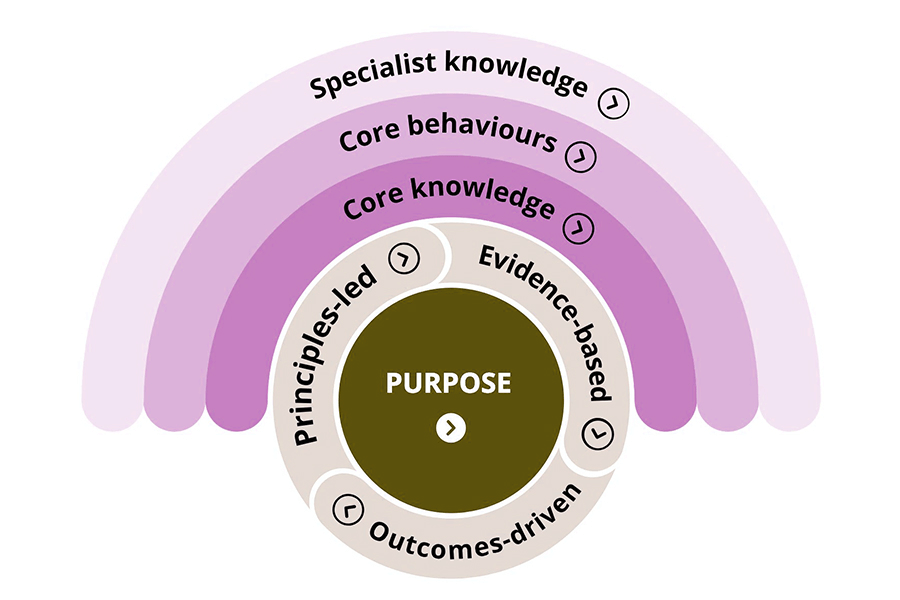Earning the Chartered Institute of Personnel and Development (CIPD) qualification is a significant milestone for anyone pursuing a career in Human Resources (HR). It enhances your knowledge and skills in the field, boosts your professional credibility, and opens doors to new opportunities. However, the journey to becoming CIPD-qualified can be challenging. To help you navigate this path successfully, here are some essential tips for achieving excellence in your CIPD qualification journey
Tips for Excelling in CIPD Qualifications
Explore Available CIPD Qualifications
Numerous CIPD credentials are available, mirroring the diversity of work in the human resources and learning and development fields. Plenty of things will go into determining the precise course that is ideal for you, including the area of expertise (and potential profession) that you’re considering, and what you already know and have done. Your strengths and passions in the workplace
You can discover a CIPD course that fits your job development goals among the many that are offered. Evaluate the available credentials in light of how these factors pertain to each. With any luck, this will shed some light on your suitability for that qualification.
Determine Your Desired Difficulty Level
After selecting the CIPD qualification you wish to pursue, you must determine the level of difficulty at which you want to study it. CIPD credentials are categorized into levels based on their level of complexity. The CIPD levels are as follows:
Foundation Level (Level 3) is an introductory qualification that is comparable to an A Level. It is intended for individuals who are at the beginning of their careers and seeking to acquire fundamental knowledge and experience in their profession. Level 5 is an intermediate designation, positioned between the beginning and expert levels.
It is intended for individuals with prior experience in human resources or learning and development who aim to advance to higher-level positions. It is comparable to an undergraduate degree level. Level 7 is the highest qualification available for study with CIPD, classified as Advanced Level. It is comparable to studying at a postgraduate level. This program is tailored for Human Resources and Learning & Development professionals with substantial experience seeking to enhance their strategic orientation and drive enduring success within their organizations.
Establish a Supportive Study Network
Participating in part-time studies might feel isolating, especially for distance learners or those who only visit their educational institution once a week. Aside from the assistance provided by your tutors, you can also benefit much from the affordable CIPD assignment writing service in UK. Several colleges are implementing learning sets to facilitate knowledge sharing and mutual support among students. Distance learners can participate in this process through discussion boards or email. This can be a beneficial experience that enables you to share resources. Utilize your tutors as a valuable source of information and assistance during your studies by fostering a great working connection with them.
Select Your Preferred Qualification Type
Qualifications are categorized not just by levels but also by categories. Within one tier, qualifications are categorized based on their type. Typically, there are three sorts of CIPD credentials at one level.
The most basic form of certification within a level is an award. It typically delves deeply into a single subject. It is ideal for enhancing expertise in a certain area. The completion typically ranges from one to three months. Certificate encompasses a wide variety of subjects within a certain field. A certificate provides comprehensive knowledge of a subject, serving as a foundation for career advancement and moving into higher-level positions. The completion typically requires six to eight months. The most advanced qualification available at a specific level is a diploma. The program typically requires one to two years for completion and provides a comprehensive understanding of the subject.
Master Time Management Skills
There will be specific deadlines for submitting work or presentations, but there may be other duties with more flexibility. Upon receiving information about the timing of your assessments, you can schedule your time accordingly. It is crucial to allocate additional time for tasks like proofreading and referencing. Recognize that your study time is limited. Be realistic about how much time you can spend studying and plan how to utilize it effectively. Ensure to allocate time for enjoyable pastimes and life outside of job and academic pursuits. You may experience increased productivity while working as a result.
Conclusion
In conclusion, achieving excellence in CIPD qualifications requires careful consideration of available options, determination of difficulty levels, building supportive networks, selecting appropriate qualification types, and mastering time management. With these tips, you’re well-equipped for success in your HR certification journey.








Sign up